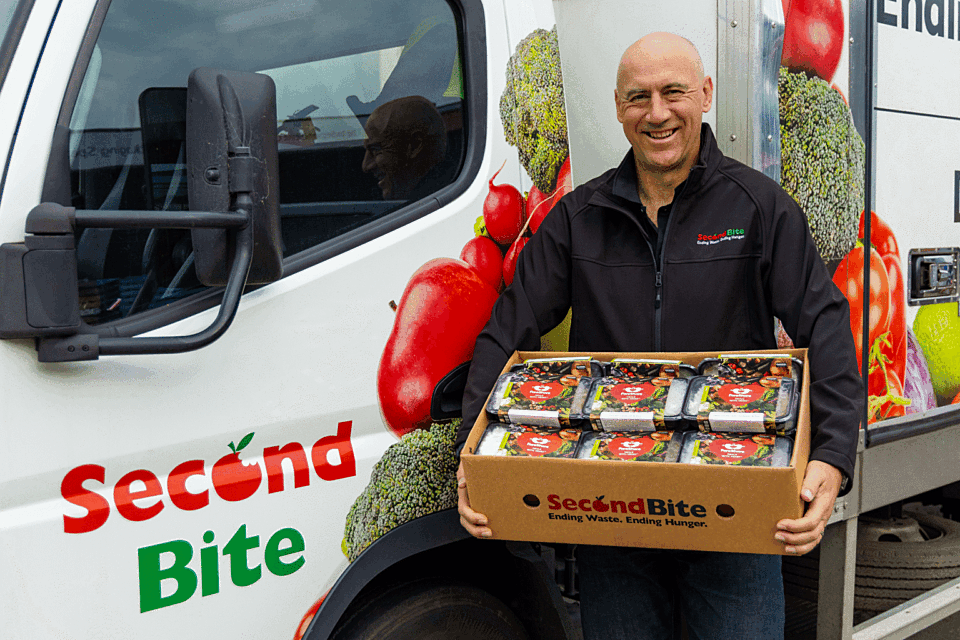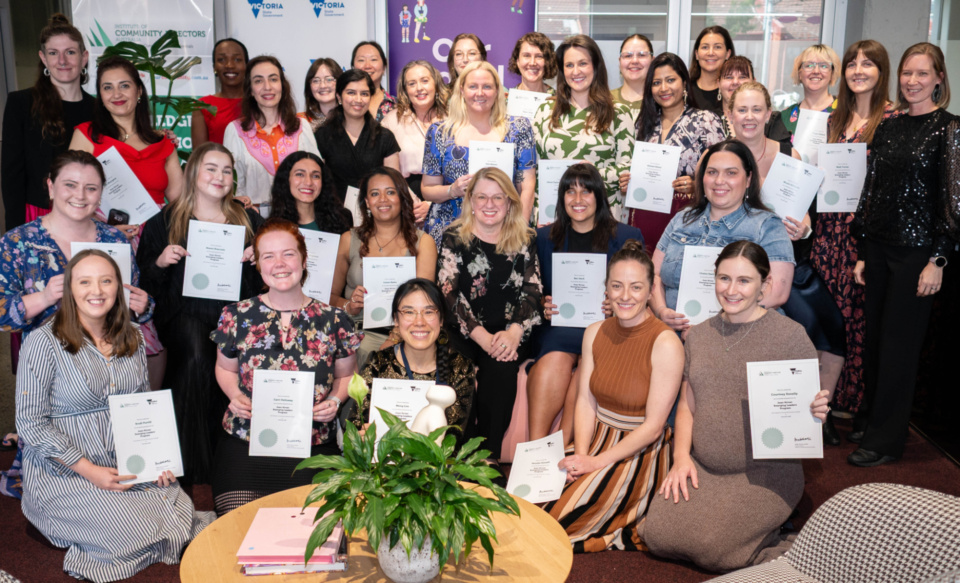
What not-for-profit leaders need to know in 2026
Posted on 12 Feb 2026
Our special NFP trends report distils the views of more than two dozen experts.
Posted on 17 Jul 2025
By Matthew Schulz, journalist, Institute of Community Directors Australia

It’s no secret that making a not-for-profit merger work requires stamina and teamwork.
Not all transitions are smooth. For example, AusCycling’s massive merger involving 18 separate local and state cycling organisations into a single member-controlled organisation involved painful scrapes and crunching gear changes during its five-year shift to becoming a national body.
But it got there in the end, and in recent times, several organisations have demonstrated that it’s also possible to possible to glide through the peloton and make a seamless breakaway when conditions are right.
In many cases, it’s easy to see the cultural synergies, but that’s often a reflection of the work going on behind the scenes.

“We are proud of this decision, and how it demonstrates our commitment to acting in the best interests of our rainbow communities and maximising the impact of our resources."
GiveOut and the Aurora Group merged in November 2024 to form the Rainbow Giving Alliance.
The union created a single stronger organisation better able to achieve the goals of its parents.
Rainbow Giving Australia CEO Em Scott said the merger reflected both former organisations’ commitment to serving LGBTQIA+ communities.
“We are proud of this decision, and how it demonstrates our commitment to acting in the best interests of our rainbow communities and maximising the impact of our resources.
“By joining forces, we are amplifying our impact and setting a stronger foundation for the future of our community,” she said.
In similar fashion, food relief agencies SecondBite and FareShare in July 2024 combined the national scale of SecondBite and the “community-led culture” of FareShare, while retaining their own identities.
A year on, the organisation has seen a 30 per cent increase in meal production and an eight per cent increase in rescued food.
SecondBite and FareShare CEO Daniel Moorfield said that with food insecurity continuing to rise, the merger between the two organisations was more important than ever.
“The merger between SecondBite and FareShare has enabled us to go further and faster in delivering food relief where it’s needed most,” he said.
Two of Victoria’s longest running drug and alcohol services combined in 2023 when Windana took over the TaskForce Community Agency, expanding services and taking on most Taskforce staff.
Victoria-based child and family services provider Berry Street and disability services provider Yooralla merged in December 2024 promising to “integrate services” where they overlapped and to increase services where possible. They also maintained their existing names and brands.
The chair of Berry Street, Joanna Flynn, said her organisation had seen an increase in the number of young people facing a combination of disability, trauma and mental health issues, and that Yooralla’s work complemented Berry Street’s.
“It became very clear that merging our two organisations would provide enormous benefits for Yooralla service users and clients with disability, particularly through access to Berry Street’s excellent early intervention therapeutic supports and wraparound family services,” Yooralla chair Jennifer Williams said.
Also in December last year, the Leukemia Foundation merged with Bloomhill Cancer Care – based on the Sunshine Coast – to increase cancer support in regional areas.
More recently, on the Victoria–NSW border, Personnel Group and Aspire Support Services merged at the start of July 2025, bringing their disability sector skills under one umbrella, again maintaining existing brands. CEO John Gibbons promised the merger would provide a cultural fit and increased services.

Victoria’s Senator Raff Ciccone, a graduate of ICDA’s Diploma of Governance, drew on his governance training to help guide Link Health and Community through its challenging 2020 merger with the Latrobe Community Health Service. The project proved to be an opportunity to transform the organisations.
“We were able to turn the organisation from one that did not have a lot of money, that did not have a strategic plan in place, did not have a vision for where it wanted to go in over the 10 years, to one that had grown threefold [and] had a vibrant employee workforce that was happy to be part of the organisation.
“We changed the culture, we instituted new policies, and we were able to reshape the organisation and refocus it so that it actually met the needs of not just the members but the clients as well too. That's the power that I think directors have.”
The merger focused the board on “the value of what it is that we are trying to achieve, and what's our objective”, he said.
“Listing the values is always important in the culture of the organisation, and I think that's where a lot of people fall over. They don't do their homework at understanding ‘Can the two organisations come together because the cultures are so different, or are the cultures so aligned that it will actually make that transition very smoothly?’
“If you don't get that right, I feel like that you ultimately end up in a situation where one side feels like they've lost out, or the process just stops, and you've just wasted lots of money on legal bills, on why we should have merged or should not have merged.”
He said tight finances in the NFP sector meant that failed mergers put a great deal of pressure back onto organisations forced to explain the result to funders, including governments.
“Doing the course made sure that we were able to understand the right processes were in place, understanding how our members and the values of the organisations aligned, so that they could come together, to ensure that any merger proposition is seamless.”

Melanie Khoo, the treasurer for the Midland Women’s Health Care Place (MWHCP) in Perth’s eastern suburbs, said the counselling service had learnt “there is great strength when an organisation is operating to its beliefs and values, that will overcome any adversity”.
The organisation provides low-cost counselling services for women dealing with issues such as relationship breakdown, domestic violence, anxiety and depression.
Like many not-for-profits, the organisation suffered significant covid-19 disruptions that prevented in-person counselling and led to the organisation being temporarily shut down, but it was able to rely on a “comfortable cash balance” to tide it over for a time.
While a longer disruption may have caused a greater financial impact, Ms Khoo said the organisation used the time to plan a merger with a women’s refuge. The move would be beneficial for both organisations by enabling the combined entity to provide “end to end services”, including crisis accommodation and counselling.
“During the pandemic we progressed with a strategic merger with a women's refuge of a similar size [Nardine women’s refuge] that allowed the combined organisation to provide even greater services to the most vulnerable in our community.”
Ms Khoo said a crucial aspect of the merger was “cultural alignment for both organisations”.
“You can plan all you like, but if the staff cultures clash and the two groups don't get along then you will fail. We have been fortunate enough to have had MWHCP and Nardine working together and collaborating leading up to the merger so we knew that the two teams would get along.”

Posted on 12 Feb 2026
Our special NFP trends report distils the views of more than two dozen experts.

Posted on 10 Feb 2026
As my family dropped our teenage son off at the airport in the first week of January to embark on a…

Posted on 11 Dec 2025
Community Directors trainer Jon Staley knows from first-hand experience the cost of ignoring…

Posted on 10 Dec 2025
As a qualified yoga instructor who learned the practice in her hometown of Mumbai, Ruhee Meghani…

Posted on 10 Dec 2025
Anyone working in an organisation knows it: meetings follow one after another at a frantic pace. On…

Posted on 10 Dec 2025
Stressed, overwhelmed, exhausted… if you’re on a not-for-profit board and these words sound…

Posted on 10 Dec 2025
The Institute of Community Directors Australia trains over 22,000 people each year, which gives us…

Posted on 03 Dec 2025
Many not-for-profit (NFP) board members in Australia are burnt out, overwhelmed and considering…

Posted on 26 Nov 2025
A roll call of Victoria’s brightest future leaders has graduated from a testing and inspiring…

Posted on 12 Nov 2025
At the Institute of Community Directors Australia, we believe that stronger communities make a…

Posted on 12 Nov 2025
Like many Community Directors members, Hazel Westbury is a community leader who isn’t easily…

Posted on 11 Nov 2025
I’ve seen what happens when fear of conflict wins out over taking a principled stand.